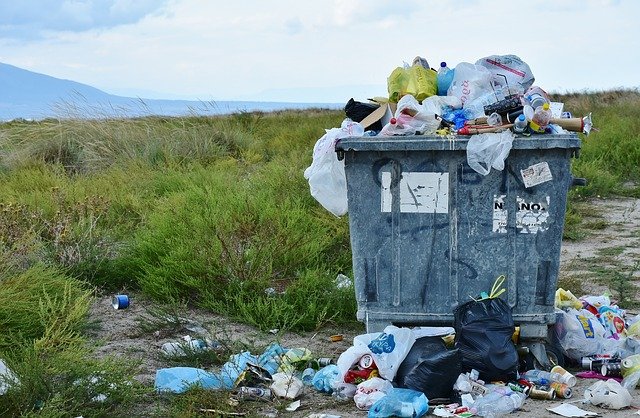New York, NY - January 18, 2017 - Chair of New York's Plastic Bag Task Force, State Department of Environmental Conservation (DEC) Commissioner Basil Seggos, issued the Task Force's comprehensive report outlining eight potential solutions to address the scourge of plastic bag waste in the state. The report was sent to Governor Andrew M. Cuomo and the New York State Legislature for consideration.
"As states across the nation and world struggle with the environmental and financial costs of plastic bag waste, New York is developing a comprehensive solution. Under Governor Cuomo's direction, the New York State Plastic Bag Task Force has identified equitable, statewide solutions to address plastic bag waste and this report provides a menu of options to tackle this issue. I'm grateful to the Co-Chairs and Task Force members for their efforts and hard work to develop this report," said DEC Commissioner Seggos.
Convened in March 2017, the Task Force was directed to study the growing issue of plastic bag waste and develop a comprehensive statewide plan to address the detrimental impact plastic bags have on the environment. The report is the result of a dedicated effort by Task Force members, including elected officials, advocates, and other key stakeholders. The report was informed by a roundtable discussion and comments DEC received from interested parties and an exhaustive review of actions taken elsewhere to address plastic bag waste.
Task Force members are:
- Basil Seggos, Commissioner, DEC
- Senator Thomas O'Mara, New York State Senate
- Assemblyman Steve Englebright, New York State Assembly
- Stephen Acquario, Executive Director, New York State Association of Counties
- Marcia Bystryn, President, New York League of Conservation Voters
- Michael Rosen, President and CEO, Food Industry Alliance of NY, Inc.
The Plastic Bag Task Force's Report, which can be found on DEC's website, provides an overview of the problems caused by single-use plastic bags and reviews single-use plastic bag reduction measures undertaken in New York State, the U.S., and internationally. These measures have included plastic bag fees, plastic bag bans, a combination of fees and bans, manufacturer responsibility programs, and education and outreach initiatives to consumers at both the municipal and statewide level.
The options to address plastic bag waste in the report are:
- Strengthen and Enforce Existing New York State Plastic Bag Reduction, Reuse and Recycling Act - Continue implementation of the existing New York State Plastic Bag Reduction, Reuse and Recycling Act while increasing education, enforcement and reporting requirements.
- Manufacturer Responsibility for Recycling of Single-Use Plastic Bags - Require manufacturers to fund and implement a program for the collection and recycling of single-use plastic bags.
- Fee on Single-Use Plastic Bags - Institute a fee on single-use plastic bags.
- Fee per Transaction for Single-Use Bags - Under this option, rather than a fee per bag, a single fee would be imposed for the use of single-use bags (i.e., a fee would be assessed whether a consumer received one bag or 10 bags).
- Fee on Single-Use Plastic and Paper Bags
- Ban Single-Use Plastic Bags - Implement a ban on the sale and use of single-use plastic bags.
- Hybrid - Implement a ban on plastic bags with a fee on the allowable alternatives.
- Continue Existing Policies - Continue implementation of the existing New York State Plastic Bag Reduction, Reuse and Recycling Act.
In addition, the report notes the need for any approach taken to include an education and outreach campaign to make consumers aware of the problems with plastic bags for the environment and waste stream, encourage the use of reusable bags and how to properly recycle plastic bags. As part of the education and outreach campaign, the report recommends providing funds to support the distribution of reusable bags with a focus on low and fixed income individuals. If the policy approach taken includes fees, the report suggests that any funding received by the State be dedicated to the Environmental Protection Fund.
Across New York, residents use 23 billion plastic bags annually. A significant number of these bags make their way into the environment causing litter and damaging wildlife, which can be seen within our waterways, along our streets and in our oceans and lakes. Moreover, these bags do not biodegrade -- they persist for years.










